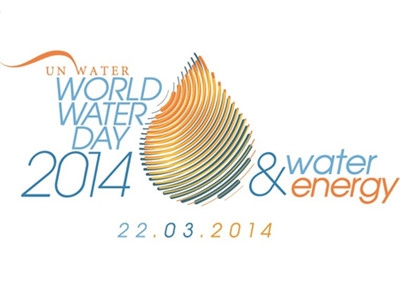Message from Ms Irina Bokova, Director-General of UNESCO, on the Occasion of World Water Day
聯合國教科文組織總干事伊琳娜·博科娃在世界水日的致辭
Water and Energy
水與能源
22 March 2014
2014年3月22日
Water is fundamental to life and is the common denominator of all sustainable development challenges. We need water to produce food and we need water to produce energy. Improving access to freshwater is about enabling millions of girls to go to school instead of walking kilometres to fetch water. It is about improving maternal health, curbing child mortality and preserving the environment.
水對生命至關重要,也是一切可持續發展挑戰的共同點。我們需要水來生產糧食和能源。促進水資源的獲取同時也意味著數百萬女童得以上學,而不必跋涉數公里去汲水。它還意味著改善孕產婦健康、降低新生兒死亡率和保護環境。
We need to better understand the complex interactions between resources that are closely interlinked, such as water, food and energy. And we must acknowledge that it is impossible to manage these resources sustainably if we treat them in isolation. Each mode of energy production has implications for the quantity and quality of water available. The choices made in one sector have repercussions on the other, for better and for worse. The World Water Development Report released today confirms, for example, that people who lack electricity are also those who lack water. This is no mere coincidence – water is required to produce energy, and energy is required to sanitize and convey water. Both are essential to human wellbeing and sustainable development.
我們應當更好地理解水、糧食及能源等資源之間的復雜互動。我們還應當承認,如果以割裂方式對待這些資源,就無法以可持續的方式對其加以管理。每種能源生產方式都會對可用水資源的質量和數量產生各種后果。一個部門做出的選擇會對另一個部門產生或好或壞的影響。例如今天發布的世界水資源報告就確認了缺乏電力的人群同樣也缺乏水資源。這并非偶然:生產能源需要水,而凈水和輸水又需要能源。二者對人類福祉和可持續發展都是不可或缺的。
Sustainability depends on our ability to understand all these connections and to develop more relevant policies that take an integrated approach to interconnected resources. The challenge is all the greater as the demand for water and energy is soaring, particularly in emerging economies, where agriculture, industry and cities are developing at a tremendous pace. We must find ways to ensure access to water and energy in sufficient quantity and quality, in a sustainable way.
可持續性取決于我們能否理解所有這些聯系,能否制定更合適的政策,能否以更全面一體化的方式理解彼此相關的資源。隨著對水資源與能源的需求發生爆炸性增長,特別是在工農業和城市飛速發展的新興經濟體,挑戰也愈加嚴峻。我們應當設法確保以可持續的方式獲取質量和數量有充足保證的水資源和能源。
Sustainability also requires better cooperation between all water stakeholders – policymakers, scientists and businesses, both public and private, who all too often ignore each other while in reality they depend on each other. The International Year of Water Cooperation in 2013 set important milestones. The initiative on sanitation of Mr Jan Eliasson, United Nations Deputy Secretary-General, also calls for greater collective action for the better management of human waste and wastewater. Poor sanitation has devastating consequences, particularly for children, and the key to the problem includes energy.
可持續性還取決于水資源的所有行動者的良好合作,包括政策制定者、科學家和公私企業,他們往往意識不到他們是相互依存的。2013年國際水合作年已打下重要基礎。聯合國副秘書長揚·埃利亞松先生在其衛生倡議中也呼吁加強集體行動,以便更好地管理人類垃圾和廢水。衛生匱乏造成很多災難性影響,特別是對兒童,解決這一問題同樣需要能源。
There is enough water in the world for everyone. What we continue to lack is better governance and the collective courage to craft fair compromise solutions. These should be based on research results and reliable data. UNESCO will continue to commit its resources to this cause, in particular through our International Hydrological Programme, the Institute for Water Education in Delft, our centres and Chairs specialized in water, and the data from the World Water Assessment Programme, which are all ways of building capacity, carrying out research and sharing good practices. Together, we can better integrate water and sanitation and the link between water and energy as positive levers for sustainable development.
地球擁有足供所有人使用的水資源。我們依然缺乏的是良好治理和找到公平的妥協辦法的集體勇氣。它們應仰賴于研究成果和可靠數據。教科文組織將繼續把本組織的資源用于這一事業,特別是我們的國際水文計劃、代爾夫特的水教育研究所、專精于水資源問題的各中心和教席、世界水資源評估計劃的數據等用于加強能力、深化研究和分享良好作法的手段。攜起手來,我們能夠更好地結合水與衛生,以及水與能源之間的聯系,將它們作為促進可持續發展的杠桿。

更多精品翻譯素材,敬請關注可可英語。











